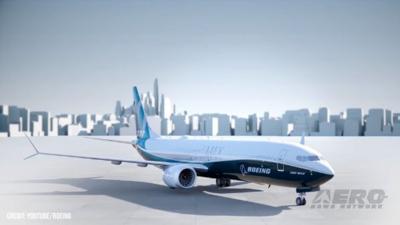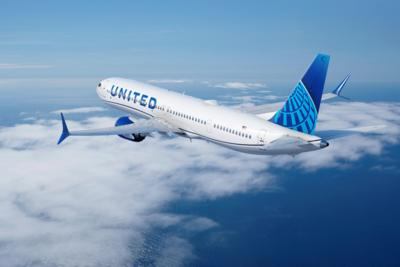Of High Stakes and Low Bars
In a move evocative of a last ditch bluff, Boeing CEO Dave Calhoun (pictured below) has declared he’ll scrap the 737 MAX 10 program if Congress doesn't extend a regulatory deadline that would allow the model to enter service without upgrades to aspects of its crew-alerting system.

Carried out, Calhoun’s threat would do away with the largest member of the MAX family—for which Boeing has, to date, logged 640 firm orders—and curtail job growth at Boeing’s Renton, Washington plant, where the entirety of the world’s fleet of over eleven-thousand 737s has been built.
In a broader, more troubling sense, the cancellation of the 737 MAX 10 would leave Boeing without a viable competitor to Airbus’s highly-successful A321neo in the lucrative, long-haul, narrow-body market.
With regard to certification, Calhoun has asserted Boeing’s current MAX 10 design is an "all-or-nothing" package that regulators must accept as-is—which is to say without the safety upgrades for which Congress has pressed.
"This is a risk I'm willing to take. Calhoun stated. If I lose the fight, I lose the fight.”
Calhoun added that he believes the MAX 10 is safe, and posits that a 2020 law mandating industry-wide upgrades to aircraft crew-alerting systems was never intended to apply to any member of the MAX family—a remarkably artful assertion in light of the fact subject law was written and ratified in the wake of two, highly-publicized 737 MAX accidents that claimed 346-lives.

In 2019, Boeing engineer Curtis Ewbank came forward with allegations that Boeing had pressured the FAA to certify the MAX in a manner conducive to its being looked upon—from the perspectives of cockpit procedures and pilot-training—as just another 737. In point of fact, the MAX does differ from its 737 progenitors.
Whether the ease and alacrity with which the FAA initially certified the 737 MAX is attributable to pressure from Boeing or to the agency’s own indolence remains unknown. What can be stated with certainty is that Congress passed the 2020 Aircraft Certification, Safety and Accountability Act to improve FAA oversight of new airplane designs.
The legislation includes a two-year deadline after which all new transport category aircraft will be required to meet more stringent certification criteria for crew-alerting systems.
At the time the legislation passed, both lawmakers and Boeing anticipated the entire MAX aircraft family would be certified prior to the new law’s 2023 effective date—thereby exempting all MAX variants from the enhanced safety standard.
To date, however, the MAX 7 and MAX 10–respectively the largest and smallest members of the 737 MAX family—have yet to receive FAA certification.

In March, the FAA informed Boeing that the MAX 10 was unlikely to be certified by the end of 2022. The delay promises to be costly for the aerospace titan, which will likely be obligated to modify the MAX 10 in accordance with the new, more rigorous certification criteria. Such modification is apt to render the MAX 10 sufficiently different from existing 737 models to require pilots to obtain separate type-ratings to operate the aircraft.
Families of the victims of the two MAX accidents have endeavored to persuade Congress to not grant Boeing the extension it seeks. Furthermore, an independent report commissioned by the FAA has concluded that the original exemption the agency granted Boeing from the crew alerting standard contributed significantly to the two MAX accidents.
Calhoun’s brinkmanship speaks to a worrying proclivity for high-stakes wagering, as does his company’s insistence that the 737 MAX 10 be exempted from the FAA’s latest and most comprehensive safety standards.
In the past, Boeing bet against long odds and won big with both its 707 and 747 aircraft families. Whether or not the company’s 737 MAX venture pays off similarly remains now for Congress to decide.
 Bolen Gives Congress a Rare Thumbs-Up
Bolen Gives Congress a Rare Thumbs-Up The SportPlane Resource Guide RETURNS!!!!
The SportPlane Resource Guide RETURNS!!!! Buying Sprees Continue: Textron eAviation Takes On Amazilia Aerospace
Buying Sprees Continue: Textron eAviation Takes On Amazilia Aerospace Hawker 4000 Bizjets Gain Nav System, Data Link STC
Hawker 4000 Bizjets Gain Nav System, Data Link STC Echodyne Gets BVLOS Waiver for AiRanger Aircraft
Echodyne Gets BVLOS Waiver for AiRanger Aircraft





